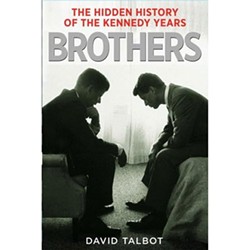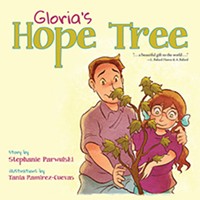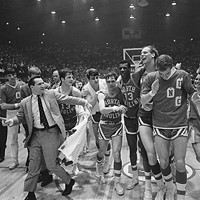By The Skin Of Our Teeth
The biggest battle was JFK vs. his generals
It's rare to find a book that's both enlightening and exasperating, but Brothers, by David Talbot, founder of the Web site Salon.com, is one of them. It's an important, insightful addition to our understanding of the Kennedy administration and of just how much we owe our survival during the worst days of the Cold War to JFK's cool-headed courage. Unfortunately, that terrific story is wrapped in a half-assed assassination conspiracy book.
What's best about Brothers is Talbot's extraordinary portrait of the Kennedy brothers at work. Relying on firsthand accounts and well-documented, footnoted information, much of it new, Talbot presents a view of the Kennedy administration that made my head spin. Primarily, he makes clear just how intense and unrelenting John and Bobby Kennedy's running battles with the nation's military and intelligence establishments really were -- as well as the brothers' conflicted and compromised relations with members of the Mafia.
The book starts with the revelation that Robert Kennedy's immediate gut reaction to his brother's assassination was to work the phones, trying to find out if the CIA, anti-Castro forces or the Mafia (or some combination of the three) were behind it. "There's so much bitterness," he told a friend that day. "I thought they would get one of us." Talbot shows that in his remaining five years, Bobby continued trying to find out who killed his brother, even though he publicly disavowed believing in a conspiracy. By 1968, the year he was killed while running for president, Bobby had decided he would dismantle the CIA if elected.
Why did the three groups in question hate the Kennedys so much? Because all of them saw the brothers as traitors.
The Mafia, one of whom, Sam Giancana, helped deliver Chicago votes for Kennedy in the 1960 presidential election, was outraged that JFK turned around after his inauguration and began the most effective war on organized crime the nation had yet seen. (Other Mafia dons had performed similar favors for Nixon, but that didn't matter to Giancana.)
Politically, the U.S. military high command in the early 1960s was far to the right of our top generals today. One stunning revelation from Talbot is that in 1961, the Joint Chiefs of Staff sternly told the new, young president that for the good of the country, he had to launch a preemptive nuclear strike on the Soviet Union. When the properly appalled JFK refused, they began to see him as a weak-kneed appeaser.
The CIA and many anti-Castro groups hated JFK because of his refusal to commit American military might to overthrow Castro during the disastrous Bay of Pigs invasion in 1961. What Talbot reveals conclusively is that, from its initial planning stages, the entire Bay of Pigs scheme was a ploy to trigger a full American invasion of the island -- a plan that had the full support of the Joint Chiefs. What's more, Talbot shows that the Kennedy White House never really had control over the Joint Chiefs, and certainly not the CIA, which continued to run anti-Castro operations in direct contradiction of presidential orders.
During the 1962 Cuban Missile Crisis, JFK's relationship with the military reached a point of crisis-within-a-crisis. The generals pushed hard, and repeatedly, for air strikes against Cuba, followed by an American invasion. Kennedy, though, saw ahead a few moves: The invasion would be followed by Soviet retaliation in Berlin, triggering NATO attacks on the Soviets in Germany, then World War III and nuclear annihilation. Only in 2002 was it revealed that an attack on Cuba in 1962 would have been disastrous in and of itself. The Soviets had many more troops in Cuba than the CIA believed, and those troops were equipped with tactical nuclear weapons and the go-ahead to use them against an American invasion.
We can thank God today that Kennedy had a clearer head than his generals or his intelligence sources. At the time, however, America's top generals were so livid, they were on the verge of insurrection -- something JFK feared, to the point that he pushed friends in Hollywood to make the anti-coup movie Seven Days In May which, ironically, was released after his assassination.
Brothers suffers when Talbot tries to use his revelatory look at the Kennedy White House to drive home the point that JFK was probably killed by some combination of renegades and nuts within the anti-Castro movement, the CIA and/or the Mafia. Many people, including this writer, believe that was the most likely scenario on that day in Dallas. But Talbot doesn't offer any new proof for his belief, and would have been better off focusing on the assassination, if he needed to, in another book. Luckily, Talbot doesn't examine the assassinations of JFK (and RFK) until the second half of Brothers. By then, readers have learned much more than they ever knew about the previously underestimated tug-of-war between the Kennedys and the military/intelligence establishment during the crisis-filled years of JFK's interrupted term in office.
Brothers: The Hidden History of the Kennedy Years
by David TalbotFree Press, 496 pages, $28
Speaking of 5.00000
-
Body Talk
Dec 12, 2007 -
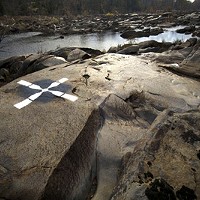
What If the Water Runs Out?
Dec 12, 2007 -
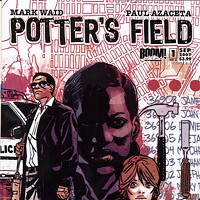
Comic Proportions
Dec 12, 2007 - More »
Latest in Books
Calendar
-

WHISKEY TASTING: VIRGINIA HIGHLANDS WHISKY @ Elizabeth Parlour Room
-

NEW WINDOW GALLERY-Pat Rhea-ACRYLIC PAINTINGS-April 05-30 2024 VALDESE, NC 28690 @ New Window Gallery/Play It Again Records
- Through April 30, 12 p.m.
-
An Evening With Phil Rosenthal Of "Somebody Feed Phil" @ Knight Theater
-
Kountry Wayne: The King Of Hearts Tour @ Ovens Auditorium
-
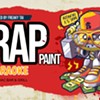
Trap & Paint + Karaoke @ Zodiac Bar & Grill
-
Halloween Guide 2016
31 spooktacular things to do in the Q.C.
-
Halo 4 earns critical hallelujahs
Plus, news on Mass Effect Trilogy, LEGO: The Lord of the Rings
-
Jessica Moss Makes the Gantt Center a Safe Zone for Local Artists 2
Flipping the script

